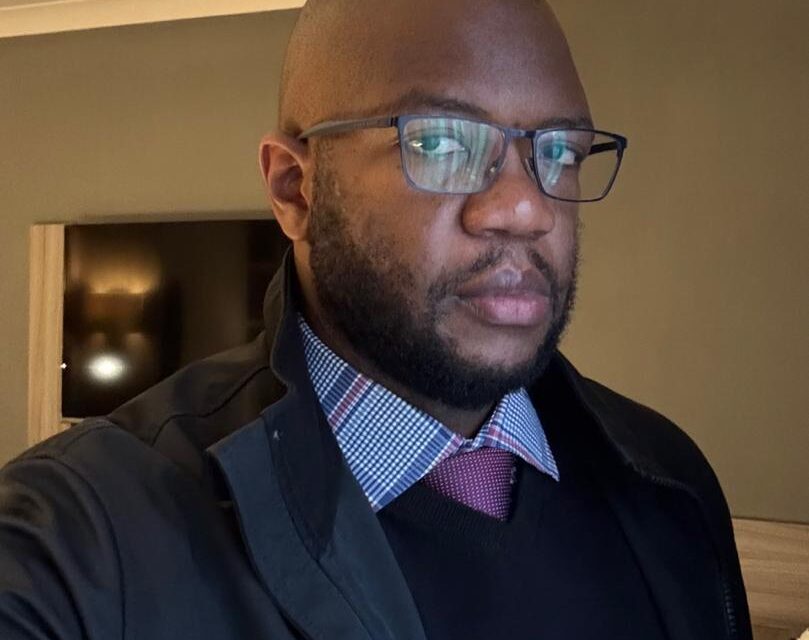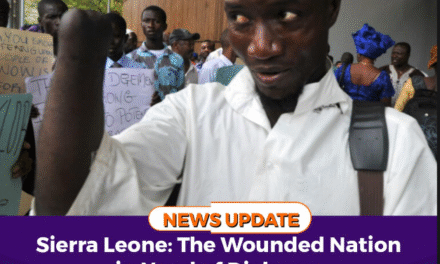By : Ibrahim Yusuf Bangura Esq. Lawyer & Governance Specialist
Sierra Leone turns 65 next year – the hard stop retirement age for most people – yet as a nation, we have achieved far less than we should have in our prime. Whenever our socio-economic development is assessed, the conversation often circles around lack of money, poor infrastructure, or limited skills. These are real challenges, but they are not the biggest obstacle to our development. The real culprit is bad governance, born out of our politics, and in particular, our zero-sum political culture.
In a zero-sum system like ours, power is the ultimate prize. Winning an election means controlling everything; losing means being completely locked out. Decisions are driven by short-term political advantage rather than long-term national interest. That is why, six and a half decades after independence, we are still struggling with the basics.
So why does this matter? Let’s play a little game of “imagine.”
- Imagine a country where every new government discards the work of the one before it. A road started under one administration is left half-finished when power changes hands. Health centres are opened with fanfare, only to be abandoned later. Development plans are rewritten and projects rebranded, not because they were failing, but because they belonged to “the other side.” The result? Money is spent, but projects take forever to finish.
- Imagine a country where budgets serve politics, not people. Instead of funding hospitals, schools, or clean water where they are most needed, resources are redirected to reward supporters. A clinic in one town sits empty with no drugs, while another in a politically “favoured” town receives more than it can use. Schools in some districts share torn, outdated textbooks while brand-new materials are handed out elsewhere.
- Imagine a country where public jobs too often go to loyalists rather than the most qualified. A capable teacher, doctor, or engineer is sidelined simply because of their perceived political affiliation. Institutions lose expertise, and the country’s brainpower goes untapped. Many talented young people simply leave, taking their skills abroad.
- Imagine a country where taxes, regulations, or contracts change with every new government. Business confidence collapses. Picture opening a business only to have the rules rewritten five years later. Jobs don’t grow, businesses stay small, and opportunities vanish.
- Imagine a country where local councils are starved of resources if they are not aligned with the ruling party. Whether a community gets a functioning borehole, a repaired bridge, or even fuel for the local health centre depends less on need and more on political loyalty. Citizens in the “wrong” areas become collateral damage in the political game.
Does any of this sound familiar? Well, welcome to the land that we love. A country where our political elites have cultivated and nurtured a vicious cycle of bad governance that has produced weak development, which ultimately has fuelled frustration with politics, which in turn leads to voter apathy and low voter turnout. The heartbreaking story of sweet mama Salone.
So what’s the way forward?
To my mind, breaking the cycle means changing certain incentives of governance:
- As a country, we need to agree on a few national priorities that survive beyond elections. Enough of party manifestos dictating our national development plans. Let’s have a legislated long-term national agenda that any party must follow when elected.
- Let us make it a habit of appointing people based on merit, not political allegiance. As a small country, we cannot afford to waste talent. We must be deliberate and intentional about putting our best people forward, consistently and without compromise.
- Let’s keep tax and regulatory policies stable enough for businesses to plan. Investors need to know the rules won’t change with every new government. If we want jobs and industries to grow, we have to give businesses the confidence to plan long-term, not scare them off with constant policy shifts.
- Give local councils resources based on need, not party colour. We’ve all heard the stories of districts starved of development simply because they are in opposition strongholds. This should never be the case. Every community deserves water, health centres, and roads, not as a political favour, but as a right.
- Make public spending transparent so citizens can track results. People deserve to know how their money is being used; where it goes, what it builds, and whether it actually reaches them. Transparency builds trust, reduces waste, and makes it harder for resources to disappear into politics instead of serving citizens.
I know these may sound like far-fetched ideas in our context, but they shouldn’t be. They are the bare minimum for any country that wants to grow. Zero-sum politics makes rational development choices irrational. It rewards loyalty over competence, spectacle over systems, and cancellation over continuity. And that, is why Sierra Leone remains stuck all these years later.
Until we fix the way politics works, no amount of development aid, foreign direct investment, or legislative reform will deliver the change people deserve. Our future depends on breaking free from zero-sum politics and building a culture of governance that serves citizens, not political parties.
So, how do we change this culture of zero-sum politics?









